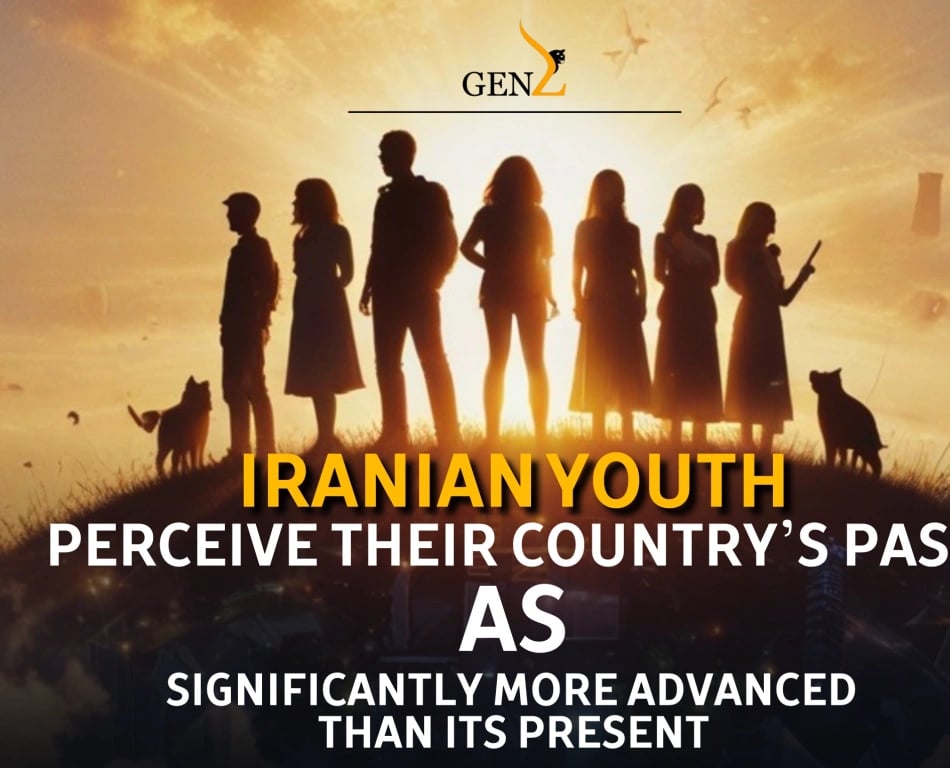Iranian youth perceive their country’s past as significantly more advanced than its present
Youth of Today, Leaders of Tomorrow In 2022, Iranian youth organized over a hundred protest gatherings, demonstrating a profound awareness of the futility of elections under authoritarian and non-democratic regimes. Numerous sociopolitical analyses have sought to interpret the significant role that Iranian youth played during this period, each focusing on different aspects such as women’s…
8/25/20253 min read


Youth of Today, Leaders of Tomorrow
In 2022, Iranian youth organized over a hundred protest gatherings, demonstrating a profound awareness of the futility of elections under authoritarian and non-democratic regimes. Numerous sociopolitical analyses have sought to interpret the significant role that Iranian youth played during this period, each focusing on different aspects such as women’s rights, minority issues, and ethnic concerns. However, the fundamental challenge that has long troubled Iranian youth—and has made building an independent and dignified life increasingly difficult—is the widening gap between their aspirations and the ideological framework of the ruling political system. This divide is the direct consequence of the interruption of Iran’s modernization project, which began with the Constitutional Revolution and reached its peak during the Pahlavi era. Iranian youth perceive their country’s past as significantly more advanced than its present. The country’s political, social, and economic stagnation in comparison to global standards has instilled a sense of responsibility in them, transforming them into the vanguards of freedom in the streets.
The aspirations of Iran’s younger generation, particularly Generation Z, are not merely generational demands relevant only to the youth; rather, they represent a national desire that resonates across all layers of society. Iranian youth are acutely aware that the country’s modernization project has been stalled for nearly five decades, leaving behind only memories and archival footage as remnants of that era.
In response to the current political situation, the most significant responsibility of Iranian youth is to consciously redefine their membership in a new social group—one that upholds modern values such as personal freedoms and democracy. For years, ideological indoctrination and state propaganda have manipulated the process of identity formation. The Islamic Republic, by emphasizing the spiritual dimension of Iranian identity, has waged an all-out war against the country’s modernization project. However, Iran’s Generation Z, as pioneers of freedom and modernity, has mounted strong resistance against this effort. Their defiance against the regime’s homogenizing ideology has manifested in their use of ancient Persian symbols and their nostalgic recollection of a glorious and modern Iran. Moreover, their refusal to comply with the so-called morality police, their rejection of the officially imposed identity, and their insistence on liberal democratic values constitute the core of a progressive discourse advocating for modernization.
It is an undeniable reality that the youth of today are the leaders of tomorrow. The most crucial pillars of political leadership are responsibility and accountability, which must be grounded in awareness, sacrifice, and a deep sense of belonging to Iran. The question, then, is how to facilitate the empowerment of youth for their future responsibilities. The answer lies in the revival of a national state. Without a government that prioritizes national and territorial interests, long-term strategic planning becomes impossible. For instance, during the 1960s and 1970s, Iran’s national state played a pivotal role in fostering the development and empowerment of youth, enabling them to assume influential roles in the political and economic arenas. Without such a government today, the only viable course of action is to cultivate political awareness to actively pursue democracy and the re-establishment of a national state. In this process, the idea is the modernization of Iran, the plan is fostering youth solidarity under a modern national identity, and the vision is to transform Iran into a prosperous and powerful nation.
In today’s world, where information technology—primarily the internet and social media—shapes public perceptions, Generation Z navigates its worldview based on self-acquired knowledge, structuring its lifestyle accordingly.
Consequently, Iranian youth have constructed a new value system aligned with global norms, with individual freedoms at its core. Social media has profoundly influenced the cognitive and value-driven transformations of Iranian youth. The widespread circulation of content advocating for a dignified life, the right to choose one’s attire, the right to free relationships, and, ultimately, the right to express opinions and enjoy freedom of speech has led social media audiences to identify with a newly emerging value system—one fundamentally rooted in liberal democracy. The driving force behind Iran’s Generation Z’s radical actions is their unrestricted access to information and their ability to rapidly disseminate it within a networked society composed of activists and content creators.
Reducing social media to mere entertainment, satire, or trivial content is a critical miscalculation that undermines an accurate understanding of the new generation and the means of engaging with them. Social media is a tool that evolves based on its users’ content. As such, it has the potential to create a parallel digital world—one that sometimes even surpasses the real world—where suppression and censorship no longer hold sway, and the process of raising awareness about Iran’s national future is dictated by free individual choice. Today, the building blocks of intellectual development, once confined to library shelves, are equally present in social media.
By embracing national identity markers such as the Persian language, historical narratives, collective memories, and cultural symbols—while simultaneously gaining knowledge and engaging with political movements advocating for Iran’s reconstruction—youth can consciously assume the role of freedom fighters today and political leaders tomorrow.
